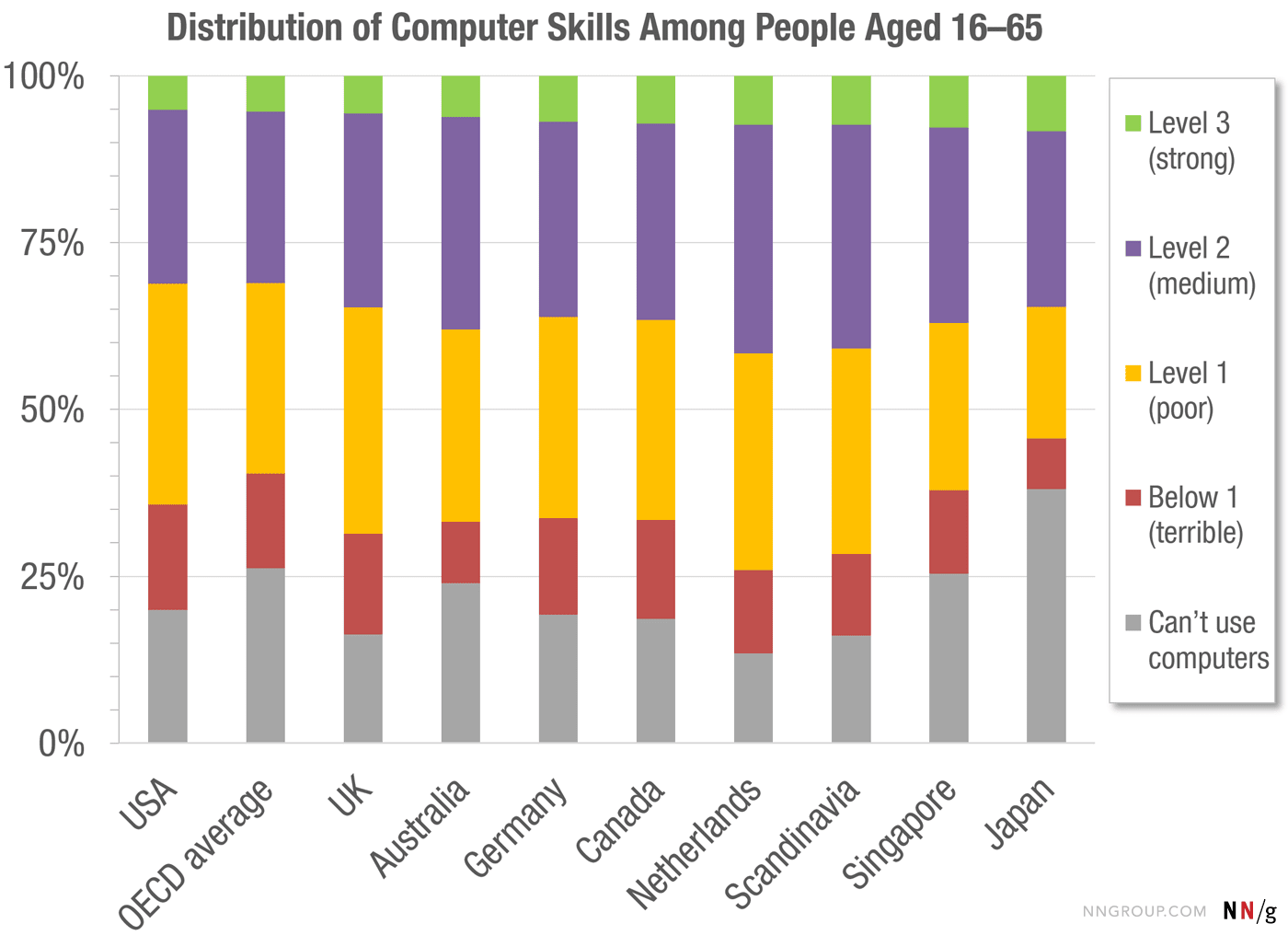Intelligence varies more than it may appear. I tend to live and work with people near my own intelligence level, and so―probably―do you. I know there's at least two tiers above me. But there's even more tiers below me.
A Gallup poll of 1,016 Americans asked whether the Earth revolves around the Sun or the Sun revolves around the Earth. 18% got it wrong. This isn't an isolated result. An NSF poll found a slightly worse number.
Ironically, Gallup's own news report draws an incorrect conclusion. The subtitle of their report is "Four-fifths know earth revolves around sun". Did you spot the problem? If 18% of respondents got this wrong then an estimated 18% got it right just by guessing. 3% said they don't know. If this was an exam, then we would conclude that only three fifths of Americans know the Earth goes around the Sun.
The NSB, which gets its data from the GSS, found 27% of Americans got this question wrong. If we assume those 27% were guessing, then 46% of Americans know that the Earth goes around the Sun.
It could be worse. 59% answered correctly the sex chromosome question, which indicates that 18% know the true answer. 45% answered correctly about whether lasers focus sound waves which means that −10% of Americans know that lasers don't focus sound.

Trying to determine what your point here is.
Since "intelligence" (thorny definition) could be said to be distributed in a normal distribution (if it's even possible to plot "intelligence" (let's say, "intellectual" or, dear me, "IQ")), and those people below the median would be less likely to be well educated (making assumptions here), then it would be expected that a significant proportion of every population will have people that won't answer these questions as well educated people with higher intelligence (to me these are obvious points, though maybe I'm missing something here).
I think a lot of people in high school (and otherwise) had little motivation to learn, so their knowledge may seem painfully inadequate compared to that readers of forums such as this. But, then, if you ask these people what practical use is knowledge of genetics or whether a star revolves around a plant of vice versa, their answer would probably not surprise you.
But, then, perhaps they could gut a fish in 30 seconds or fix the carburetor on your car as the zombies are closing in (faster than you* or I would whilst we're frantically speeding up the youtube video or sending the photo to chatgpt), so pluses and minuses (I won't judge in which direction the pluses and minsues tally for any person at any particular time in any particular universe).
On the other hand: Idiocracy (2006)
The thing I'm trying to do is calibrate my model of the distribution of human intelligence. The actual distribution is way lower than my immediate environment makes it appear. Here's another post I wrote which should provide some context on what I mean when I write about "human intelligence". The basic idea is that things like "can fix a carburetor" and "understands genetics" are correlated, not anti-correlated.